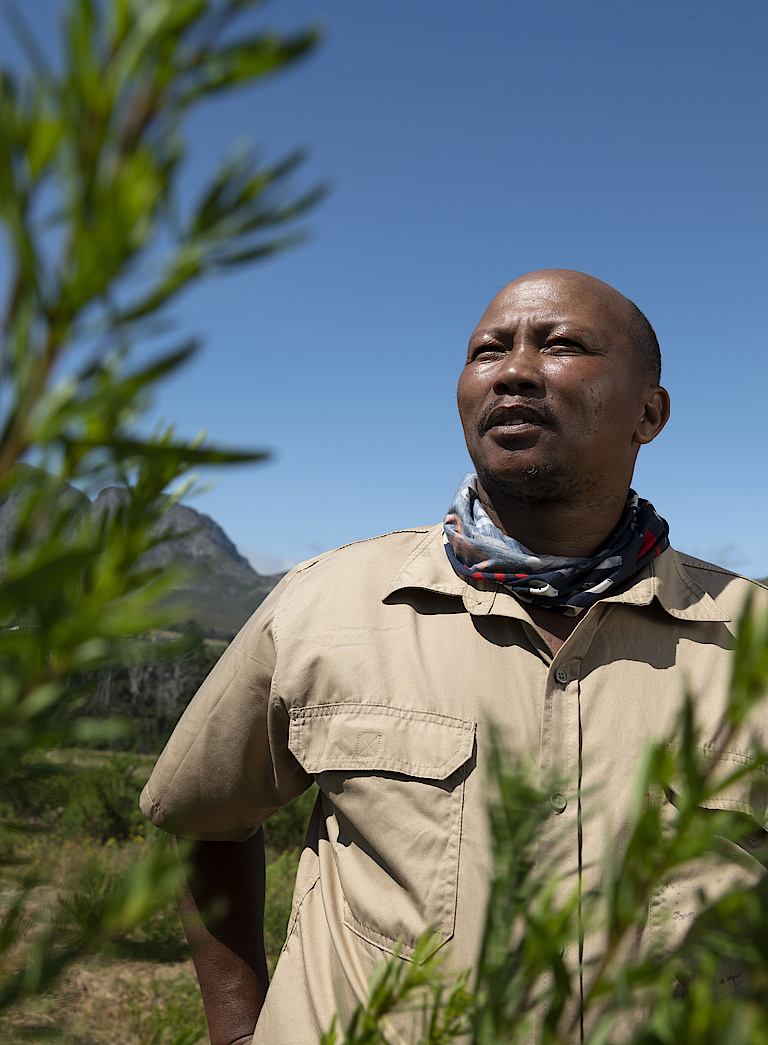Co-creating an alternative community engagement approach for the benefit of recipients, producers and the natural kingdom
We know that the survival of earth’s biological diversity remains threatened, and the situation is deteriorating. The Nagoya Protocol on Access and Benefit-sharing, with its ethical and legal practices known as Access Benefit-Sharing (ABS), provides the impetus to confront this crisis as a global community. Working towards a shared purpose where cooperation is aimed at benefitting all the parties involved and the earth - is highly relevant in dealing with the earth’s bio-diversity crisis, as well as other related challenges of our times.
Let’s hone in on all the humans and non-human species who are essential in realising this vision of betterment - this begins with local communities whose heritage is closely linked to the land or people working directly with the natural resources in wild or cultivated form; indigenous knowledge holders, researchers, academia, businesses, NGOs and government. The diversity and geographic scale of the people involved and the flora and fauna which is impacted is substantial. Naturally realising the aim of betterment and sustainable use for all requires good co-operation between the many stakeholders in the economy of bioprospecting and biotrade.
Current community engagement approaches highlight the limits of the current ways stakeholders engage each other within the context of regulatory compliance. Regulatory requirements can be so significant that they become the sole focus of attention. A big question remains - could we do more? Could we tend to both the requirements of the law and develop relationships that offer more responsive and productive ways to address this significant challenge of our times? That is, to support people to earn a living and learn from each other in dealing with daunting issues that are both cross-cutting and unique to the bioeconomy.
This prompted the DFFE ABioSA Community Engagement Pilot Project within the Honeybush Industry in South Africa. Our purpose was to discover alternative ways of co-operation and partnering centred around a shared evolving purpose to protect Honeybush and maintain its sustainable use and consumption. What emerged as part of this pilot project are deeper insights, better questions and the beginnings of an informal purpose-led community, called Friends of Honeybush.
Friends of Honeybush stands for many things and it will continue to take on its self-organised form informed by the collective intelligence of local communities, our knowledge about the plant species that is impacted, and the experience and perspectives of a wide array of stakeholders; each of us sharing a ‘hands on’ and purpose driven intention of prosperity, conversation and sustainability.
The pilot project participants informed the development of a dialogue process consisting of three conversations known as The ABioSA Wayfinder. As a group makes sense of their environment and current situation, the process invites the bio-cultural insights and wisdom of the participants to come to the fore. The Wayfinder is guided by a Community Host. This person welcomes and creates an inclusive space for collective sense-making. The Wayfinder dialogue process was tested with Young People living in the Tsitsikamma region. We discovered that the Wayfinder served as an island of sanctuary and supported how people could convene, connect and explore their realities. They collectively arrived at choosing different priorities that then supported how they could navigate their current circumstances as community was forming.
The Wayfinder is a living process - it continues to grow in its function and develop in its form as different stakeholders use it for perspective finding and discerning feasible choices that everyone can support. Its purpose is to promote agency and evoke a community-orientated way to explore potential and possibilities together. We would like to widen the circle of collective wayfinding within the bioeconomy and the Youth. If you would like to extend the Wayfinder into your networks, we invite you to get in touch with us.
In taking the long-term view, picturing the implication of many small groups growing in their sense of collective agency and belonging has implications for any industry and the environment. To support and strengthen the possibility for betterment, nimble ways to facilitate learning and knowledge distribution is essential for fostering ongoing collective wayfinding. The Honeybush Community Engagement Pilot Project has come to a meaningful end with the identification of different directional possibilities. To nurture the possibilities that are budding within multi-stakeholder networks associated with the bioeconomy, we ask you to become a Friend of Honeybush. Do you want to contribute and build on potential directions? Let us know so we can explore this further.
As a member of the Friends of Honeybush, would you like to:
1 | Use the Wayfinder dialogue process in your situation with different Stakeholders in the bioeconomy? | Contact Person Adrie El MohamadiGIZ Component manager |
2 | Start and/or contribute to a research project involving Young People or Wild Harvesters in the bioeconomy? | Contact Person Rhoda MalgasNelson Mandela University |
3 | Express your interest and find out about Community Hosting and the upskilling and learning approach? | Contact Person Ingeborg Adelfang-HodgsonGIZ Technical Advisor |
4 | Contribute to a start-up mentorship fund in support of a Youth Mentorship Network in Honeybush? | Contact Person Raoul Du ToitSAHTA Board Member |
